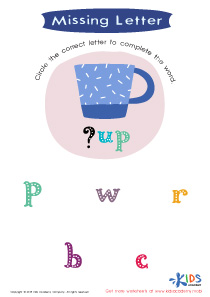Cognitive Development Kindergarten Phonics Worksheets
6 filtered results
-
From - To
Discover our engaging Cognitive Development Kindergarten Phonics Worksheets at Kids Academy, designed to boost early literacy skills through fun and interactive activities. These expertly crafted worksheets help young learners develop critical thinking, letter recognition, and sound association, fostering a strong foundation for reading and writing. Each worksheet is thoughtfully created to capture your child's interest, encouraging hands-on learning through playful exercises in phonics. Perfect for home or classroom use, our comprehensive collection supports cognitive growth and sets the stage for academic success. Start exploring today and watch your kindergartener thrive!
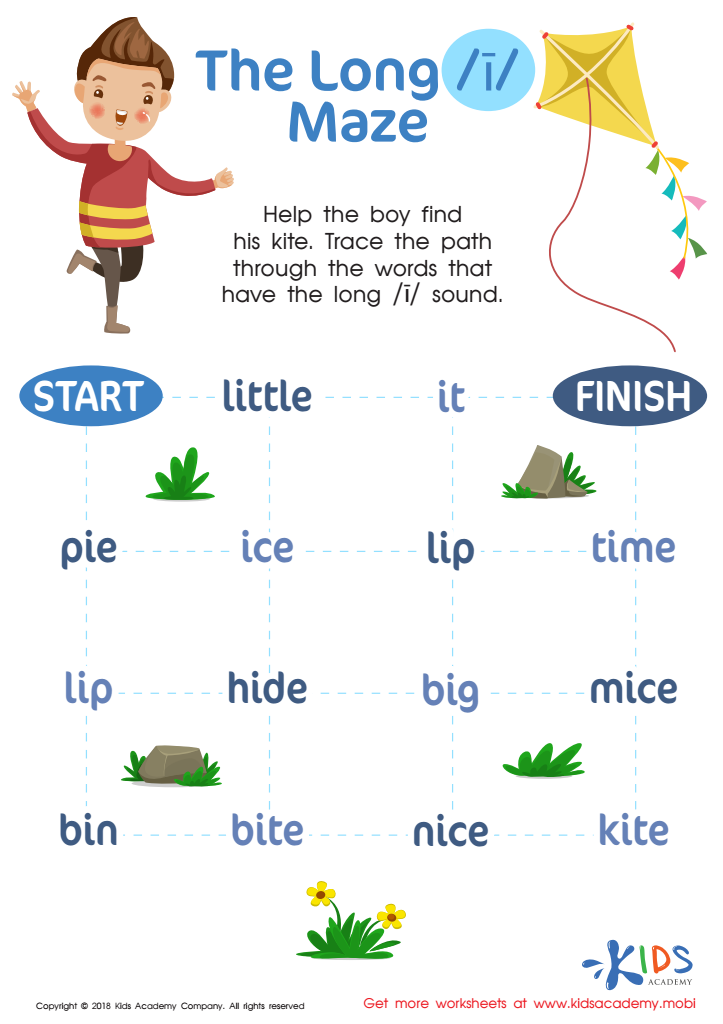

The Long I Maze Reading Worksheet
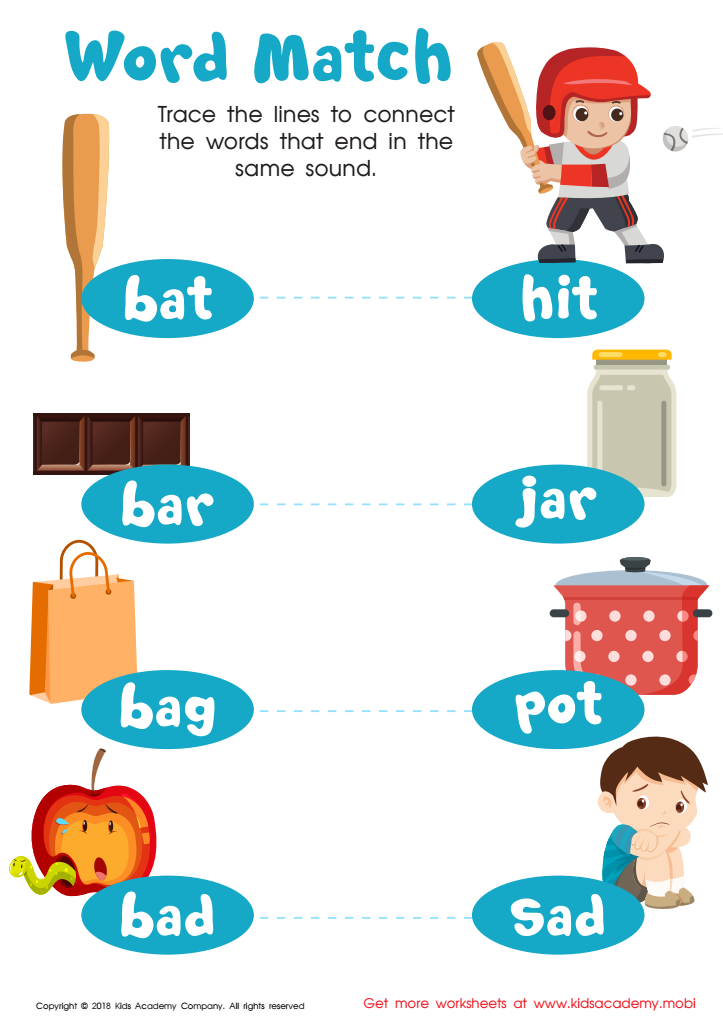

Word Match Reading Worksheet
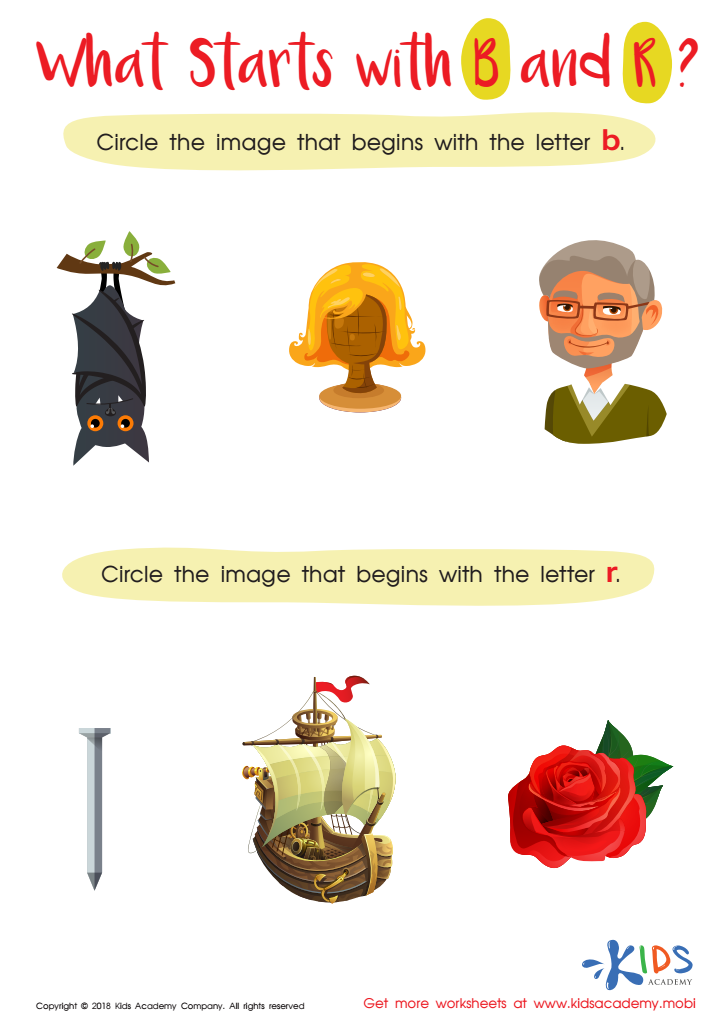

What Starts with B and R? Worksheet
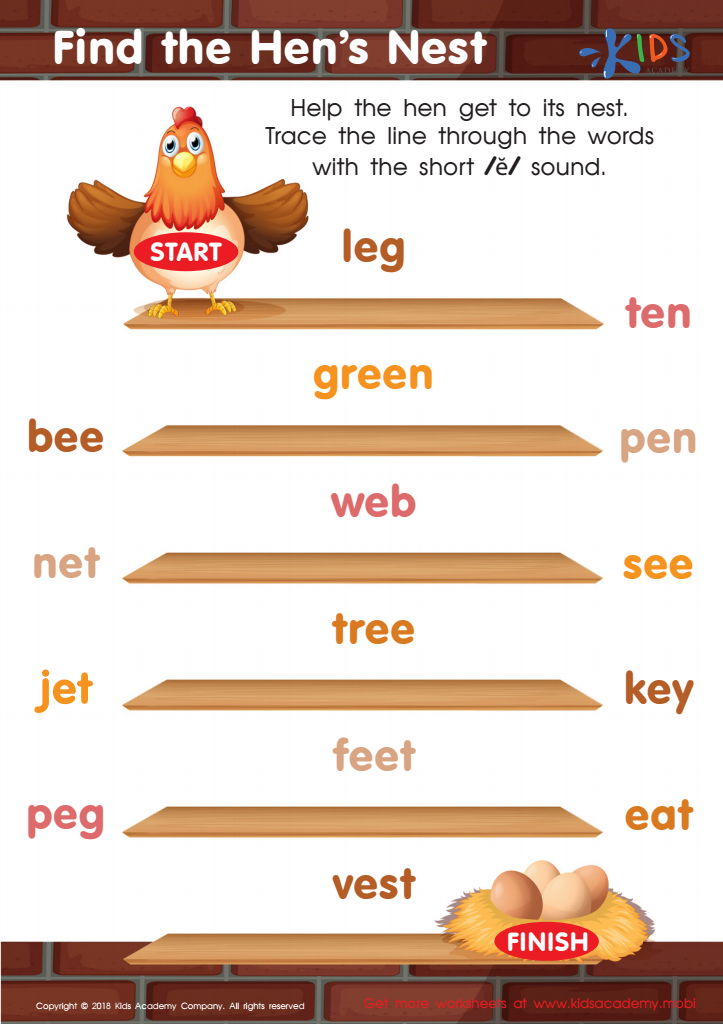

Find Hens Nest Reading Worksheet
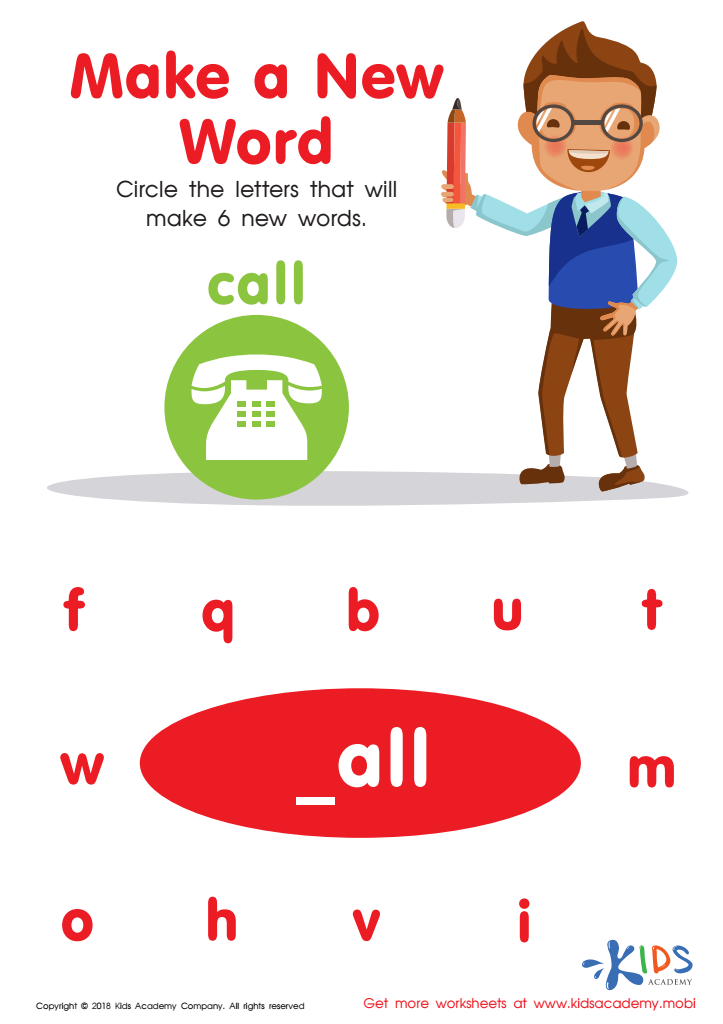

Make a New Word Worksheet
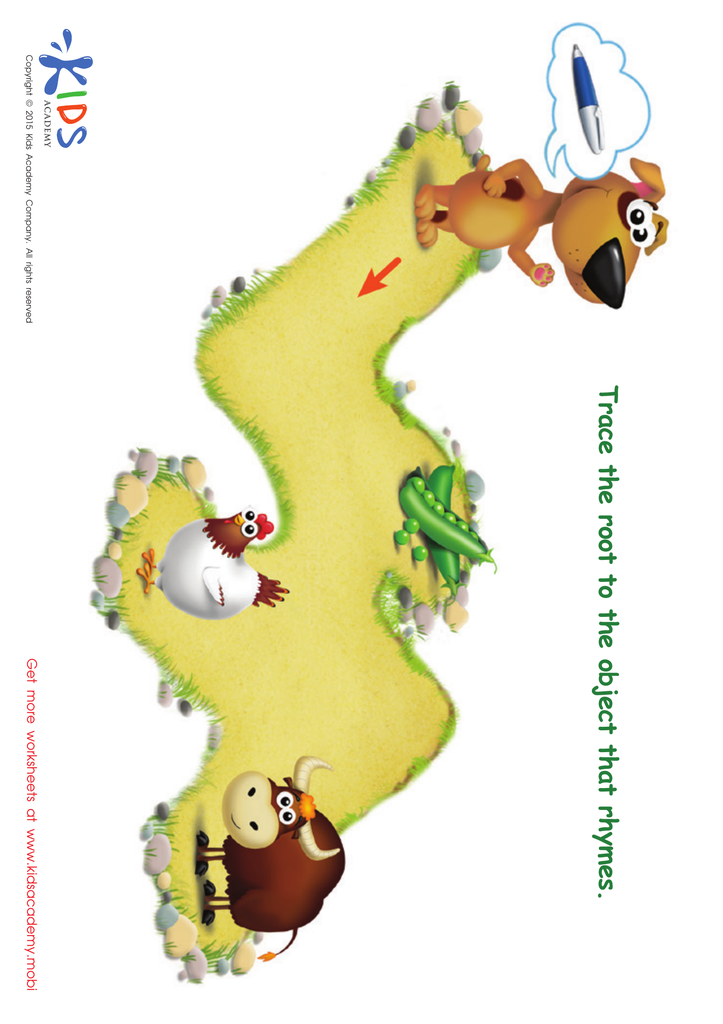

Pen Rhyming Words Worksheet
Caring about young children’s cognitive development, specifically through kindergarten phonics, is fundamental for building a strong educational foundation. During early childhood, the brain is highly capable of absorbing new information. Introducing phonics at this critical stage enhances children's ability to recognize and manipulate sounds, which is key for reading and writing proficiency.
First, phonics instruction helps children understand the relationship between letters and sounds. This knowledge empowers them to decode words independently, fostering early reading skills. As reading is a cornerstone for all future learning, mastering phonics can lead to greater academic success across subjects.
Second, cognitive development in the preschool years is linked to language skills. A structured phonics program stimulates areas of the brain responsible for language processing and comprehension. This not only supports reading skills but also enhances overall cognitive function, including memory, attention, and critical thinking.
Moreover, as children become confident in their reading abilities through phonics, their self-esteem grows. Higher confidence results in a positive attitude toward learning and school, which motivates them to engage and persevere in educational activities.
In summary, parents and teachers should prioritize cognitive development through kindergarten phonics because it lays the groundwork for future educational achievement, supports essential brain functions, and builds confidence, fostering a long-term love for learning.

 Assign to My Students
Assign to My Students









